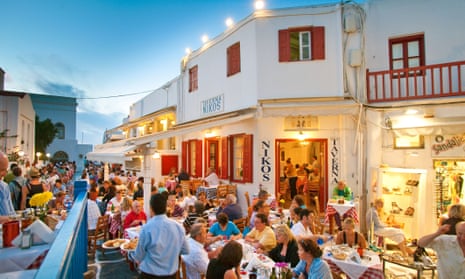British tourists face continued restrictions on travelling to the EU this summer even as the bloc opens up to others, including residents of the United States.
Eight countries are to be added to a list of countries from where the EU says non-essential travel is safe, but the UK has not been included.
Albania, North Macedonia, Serbia, Lebanon, the US, Taiwan, Macau and Hong Kong will join Australia, Israel, Japan, New Zealand, Rwanda, Singapore, South Korea, Thailand and China on a “white list”.
Diplomatic sources said that while the UK’s level of cases per 100,000 people had been within the criteria for inclusion on the list, the exponential growth of infection by the Delta variant had proven to be an obstacle.
“There are serious concerns about Delta and surge of numbers,” an EU diplomat said. The expansion of the white list was agreed at a meeting of EU ambassadors in Brussels.
The decision means that member states remain advised to prohibit non-essential travel to those coming from the UK even as the EU looks forward to opening up for the summer holiday season to people from around the world.
The debate over whether to fully reopen, and Boris Johnson’s decision to delay stage four of his roadmap to normality, had played a part in the EU debate over British tourists, sources said.
Deaths are relatively low and stable in the UK and the Covid vaccines have been shown to work well in protecting people.
But positive Covid cases are up 38.8% week on week and the number of people hospitalised has risen by 22.1%. The Delta variant is believed to make up more than 90% of new cases.
In contrast, in Belgium the Delta variant is believed to be just 1.9% of new cases and it is believed to account for 2% to 4% in France. The Delta variant is believed to be about 60% more transmissible than the variant first identified in Kent.
To add to the woes of British tourists, the UK government has also refused to put any EU member states on a green list of countries to where travel is permitted without a need to quarantine.
The EU’s white list only provides guidance to EU member states and fully vaccinated UK tourists are already being permitted into a number of EU countries including Portugal and Greece.
From 1 July, a Covid passport scheme will also come into force to allow EU residents and people from some non-EU countries who are fully vaccinated, have had a negative test or can prove recovery from the disease to move freely within the union.
The expectation in Brussels is that EU member states will lift quarantine obligations as part of the scheme.
Member states, however, are at liberty to block even fully vaccinated UK travellers due to the emergence of “variants of concern”.
Earlier this month the EU’s ambassador to the UK, João Vale de Almeida, said he hoped this would not be the case.
“I hope many, many British citizens will come to our countries, and I hope many EU citizens will visit the UK,” he said. “I think everybody is doing their utmost to create those conditions.”
The European Commission president, Ursula von der Leyen, who is travelling to the 27 member states in the coming weeks as she signs off on recovery spending plans, said she would be using the Covid passport during her visits.
Speaking before travelling to Spain and Portugal, she said: “[The Covid passport] is applicable from 1 July but if you want to, as a member state, you can sign up early voluntarily and that is what Belgium did: Belgium allows as of today to travel with the certificate and they issue these certificates.
“Everyone who is fully vaccinated or tested negative or has recovered from Covid can get one and we have right now 15 member states who have already signed up and from 1 July all 27 member states have to apply for these EU digital certificates for Covid.”
